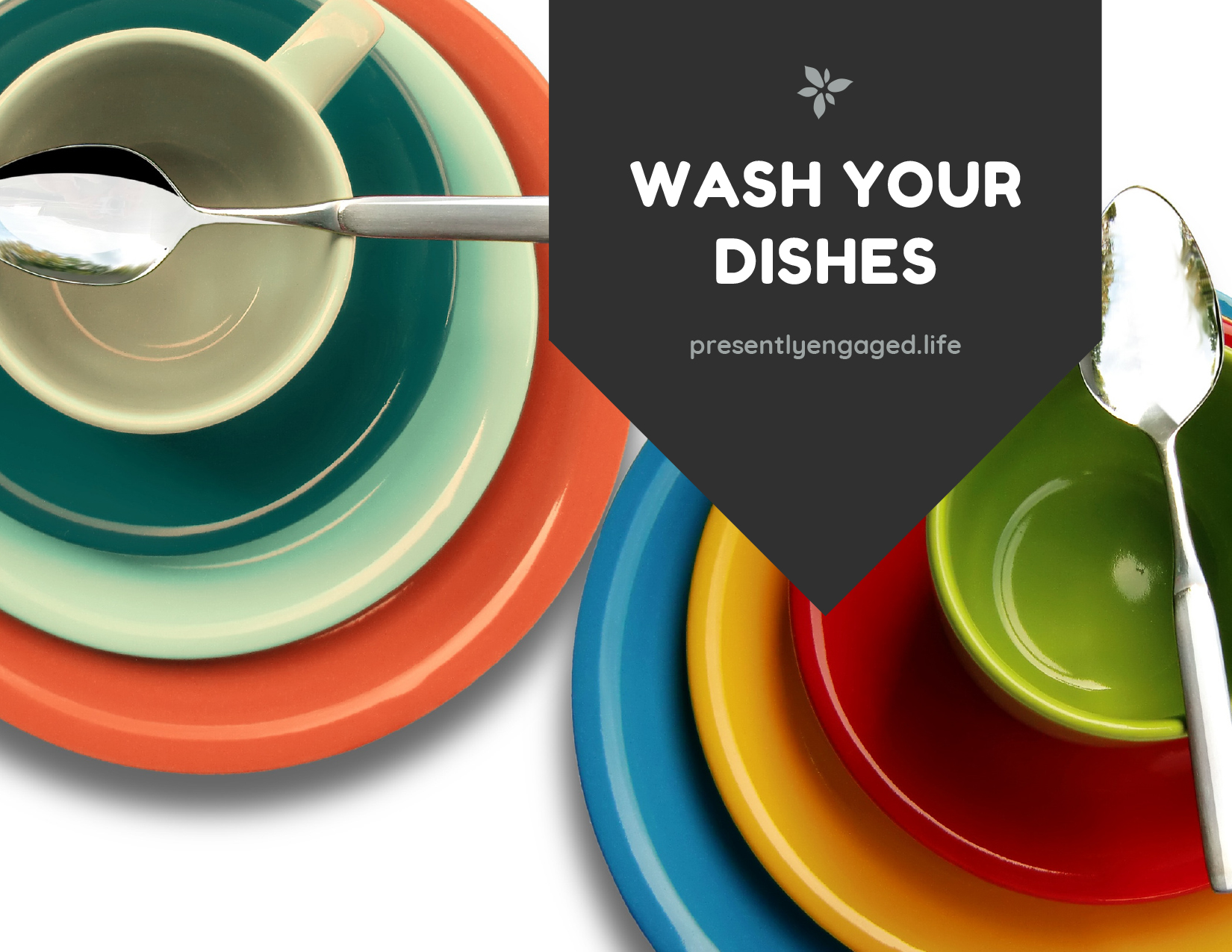As I think through this day, my plans include three meals, two snacks, multiple water and milk fill-ups, and countless messes to clean up in a kitchen with toddlers. Food is a part of life. It’s necessary. Without it, we literally shrivel up and die. The lunch meal, in all of its simplicity, is enjoyed. The youngest kids head off to resting time. I wash the dishes, rinsing the food off while the oldest works on a math worksheet at the school table. Just a few hours after the kitchen is put back into a semblance of order, it’s time to begin preparing the next meal. When happily engaged to the man of my dreams, I remember being the person of honor at a bridal shower. As I opened the towels, pizza cutters (yes, we were gifted four) measuring cups, and baking dishes, I smiled to think of all the times they would be used. Our dear and generous friends set us up so well with the gear that we would be using together. I still smile when I think back with gratitude on all the times those baking dishes and measuring cups have been present over our nine years of marriage. It makes me think: how many times have they been washed?
Because our home is a hub of action and activity, there is an allure to simply piling up the dishes after a meal and letting them wait until the end of the day. That simple act of procrastination, however, makes the work at the end of the day much more involved, doesn’t it? My tendency is to let the dishes pile up. Everything dries. Things are hard to clean. Slowly and suddenly, a simple necessity of life is now a large project to undertake. The remnants of scrambled eggs, dried on to the side of the pan. Mashed sweet potato leftovers, preserved on white plates. Vegetables, sauces, yogurt, fruit—it’s a sticky mess. Cleanup isn’t that hard when I do it right away. The sweet potatoes, BBQ sauce, and crumbs rinse off directly without too much coaxing. But if I wait, intoning those infamous words “I’ll do it later,” I’ve just created much, much more work for myself. There’s a mental cost, too. We have all experienced the difference between a clean, clear countertop and one cluttered with dirty dishes. It is a constant, visual reminder of what we haven’t yet gotten to all day long. Everything gets harder to clean the longer it sits. Dishes are a part of life. A hurtful word from a friend. A sensitive moment mis-interpreting that word. A long night of poor sleep, leading to physical exhaustion and a peevish snap at another soul. A memory from long ago that brings up deep pain yet again. As believers, we are in this beautiful position to turn to the Lover of our souls, Jesus Christ, and tell Him all about it. Going to Jesus right away in prayer, in the moment or right after the moment, washes away the gunk of that hurt or sin. But waiting—waiting for Sunday, waiting because I want to be angry, waiting because I’m too busy or feel too misunderstood—that makes the renewal process a bigger one. If I let the dishes sit, then clean will call for a scouring pad, soap, and some serious elbow grease. If we were to get to the stage of mold, bleach would need to come out and do its job. That thought of insufficiency? Take it to Jesus. That wounding word from a friend or parent? Let Him know about it. That anger or frustration? Share it with your Savior. That failure, repeated again despite the best of intentions? Turn in confession to your Redeemer anew.
Own Your Dishes
When we live in community, as a family, dirty dishes aren’t just our problem. I can talk about how leaving the dishes in a sticky pile until the end of the day makes my job harder, but the reality is that often my mild-mannered servant of a husband comes in and finishes them while I am out. Leaving a sticky mess makes his job harder, too. We’ve all lived with—or been—the messy roommate that refuses to wash the fork and the plate. When I’m ignoring my responsibility, we all have to live with the disarray.
Get Help With Your Dishes
Responsibility aside, there are times when the pile of dishes is just too big; I can’t do it myself. The kids clear their places, wipe down the table, and throw the trash away. My faithful husband Peter can be found at the kitchen sink most nights after the kids are in bed, finishing the last of the day’s mess. We are a family and live as a family, so each member pitches in at the level they can. This reminds me of a dear friend who received a deep, unexpected wound from a close source recently. Her first action was to turn directly to Jesus with her pain. Her next action was to send a quick e-mail to a small and trusted group of fellow believers, giving a quick overview and asking for prayer support. Days later, she testified how God had worked in her heart as she trusted Him to heal her pain. This isn’t gossip. This isn’t procrastination. This is asking for help with your dishes, while wielding a washrag yourself. This is the Church. Rather than blast it out on social media, curl up with an afghan and a pint of ice cream, or angrily take it out on someone else, it’s OK to ask for help. We all need help with our dishes sometimes.
Overcoming Dishes
Here’s the thing: in this world we will have tribulation. We’ll even have dirty dishes. But take heart—Jesus has overcome. He has overcome, and He is readily available in every moment to empower each one of us to overcome both the little and gigantic wounds we receive and impart. Christ sanctified you, cleansing you by the washing with water through the Word (Ephesians 5:26). Next time you do the dishes, use them as a reminder of the daily opportunities we have to turn to Jesus and ask for a little bit of soap and water.






